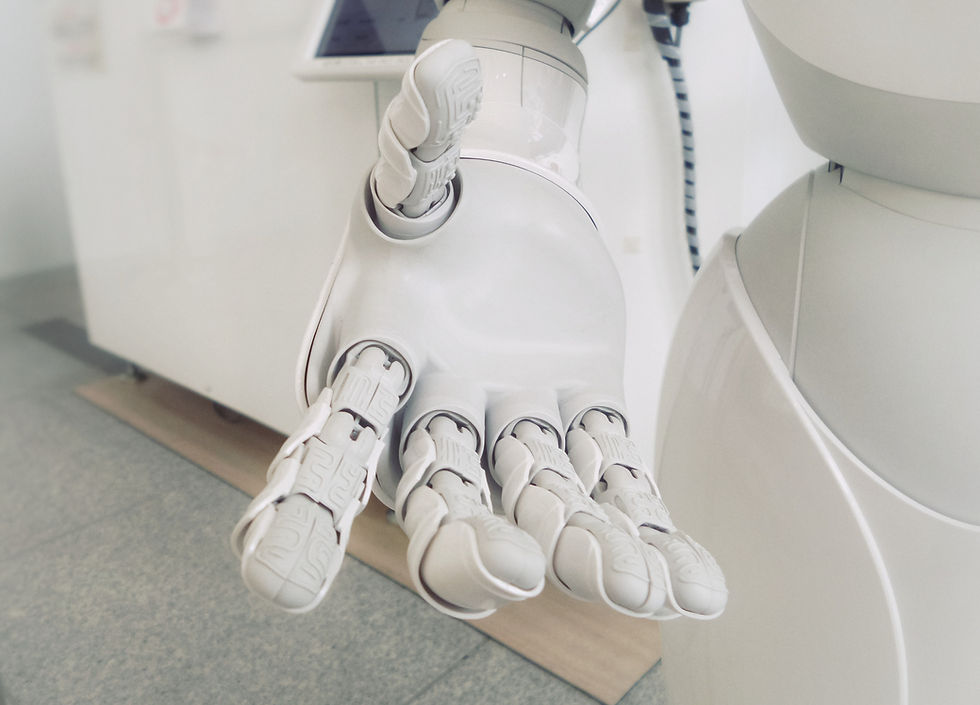Unlocking the Future: Sir Paul McCartney's AI Powered music of the Final Beatles Record
- Sharon Rajendra Manmothe

- Jun 14, 2023
- 2 min read
In an unprecedented move, Sir Paul McCartney reveals the groundbreaking fusion of music and artificial intelligence in the completion of what he dubs as "the final Beatles record." Witness the transformative power of AI as it breathes new life into unfinished compositions. Discover how technology is reshaping the boundaries of creative collaboration and propelling the music industry into an awe-inspiring future.

A Long-Awaited Collaboration: Now And Then
"John's voice and a piano could be separated with AI... it gives you some sort of leeway." - Sir Paul McCartney
The song in question, likely to be the 1978 Lennon composition "Now And Then," has been an intriguing piece of Beatles history. It had been considered for a potential reunion of the band during the compilation of their career-spanning Anthology series in 1995. However, the recording session was abandoned, and the song remained unfinished. McCartney received the demo of "Now And Then" from Lennon's widow, Yoko Ono, who had preserved it on a cassette labeled "For Paul." The lo-fi and embryonic tracks on the cassette were recorded on a simple boombox in Lennon's New York apartment.
The AI Revolution: Unleashing Lennon's Voice-Final Beatles
"Extricating John's voice from a ropey little bit of cassette" - Peter Jackson's AI breakthrough
The breakthrough came with director Peter Jackson's documentary "Get Back," where AI was employed to separate the Beatles' voices from background noise and instruments. The dialogue editor, Emile de la Rey, trained computers to recognize each member's voice, allowing for the creation of "clean" audio. This breakthrough not only facilitated McCartney to "duet" with Lennon on his recent tour but also enabled the extraction of Lennon's voice from the old demo using AI algorithms. The technology successfully isolated Lennon's vocals and piano, granting McCartney the opportunity to complete the song.
The Creative Potential and Ethical Concerns
"It's kind of scary but exciting because it's the future." - Sir Paul McCartney
Sir Paul McCartney acknowledges the potential of AI in the realm of music production. The ability to resurrect lost recordings, collaborate with past artists, and enhance the creative process presents exciting opportunities for musicians. However, McCartney also raises concerns about the authenticity of AI-generated music. The rise of deepfake technology and the potential for misattributed or manipulated recordings pose ethical challenges and necessitate careful consideration as the music industry embraces AI innovations.
Looking to the Future
As McCartney contemplates the AI-assisted completion of "Now And Then," he expresses both excitement and caution about the possibilities that lie ahead. The story of using AI to unlock Lennon's voice opens doors for exploring unfinished works, paying tribute to influential artists, and forging unique musical collaborations. It highlights the evolving landscape of music production and the role of technology in preserving musical legacies.
Conclusion
Sir Paul McCartney's revelation about using AI to complete an unreleased Lennon song marks a significant milestone in music history. The intersection of AI and music production has brought new opportunities for creativity, offering artists the chance to collaborate across time and space. While exciting possibilities emerge, it is crucial to navigate the ethical considerations surrounding AI-generated music. As the boundaries of technology continue to be pushed, musicians, industry professionals, and audiences must collectively embrace the potential while preserving the authenticity and integrity of musical expression.




Comments